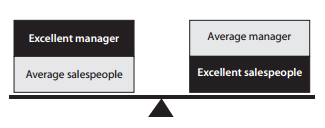Shivaji Maharaj , world renowned leader displayed great leadership qualities in the management of his vast empire.
“He was one of the greatest personalities of world history”, says Colonel Anil Athale. His management skills which date back to more than 384 years are still considered among the most valuable case studies in the management industry.
Let us appreciate some of his management skills.
1. Democratic:
He believed in the democratic pattern of administration when the term “democratic” was 100 years ahead of his times. His policies were clearly promoting the welfare of people in the midst of the feudal system. WeLearn considers this quality as one of learning aspects for every leader. It teaches us to think out of the box in present times and create examples for the future.

2. Paternalistic:
Shivaji as a leader is remembered as a father-king for his citizens. He was protective and worked for the welfare of his subjects and states. He devised this strategy in a manner that would not hurt his citizen to the slightest. He was successful in all his endeavors, spreading his “magic” to all who encountered him.
WeLearn agree and believe that in today’s time it is neither difficult nor impossible to strategize like him. Workshops like Analytical skills and Creative learning crack the most difficult puzzle of management and enable you to think in this manner
3. Fair administration:
Shivaji established a fair administration of income tax and employed civilians to collect the taxes. He also established the system of affordable loans for farmers in need. WeLearn takes a cue from his administrative skills, not only for the way he handled his citizens but especially for the way he efficiently managed his administration smoothly.
4. Ahead of Thinking:
WeLearn considers this quality as most important.
Arya Chakra said “Shivaji was a ‘true king’ since he always worked for the welfare of his people.” In those times as well as today there are two kinds of people, one who work and others who occupy chairs. Those who occupy chairs were called “Vatandars”, ruled by default since their birth in such families and turned to be autocratic. Shivaji Maharaj termed them as “enemies of the nation” and wrote on how to deal with them in his book of policies called “Adnyapatre”.
In short, be it an engineer, doctor, scientist, lawyer or successful businessman; Shivaji Maharaj’s policies are very relevant even after 300 years. Through his example we can learn the art of attracting and retaining loyal followers as well as having a clear vision of the future. These two qualities are relatively important for being successful in today’s competitive world, irrespective of the fact that one is at an executive level or in the managerial level.
Click here for more details on Hybrid Distance Learning Management courses.
By
Priyanka Hodavdekar







